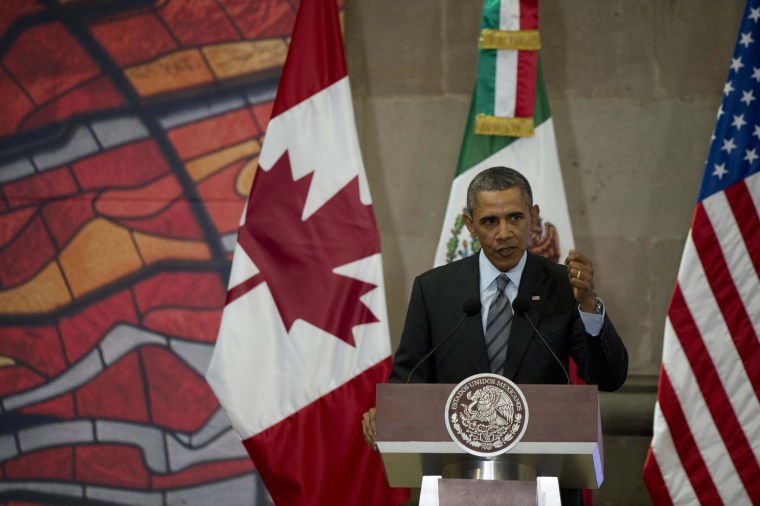President Barack Obama attended a summit Wednesday in Toluca, Mexico with his partners to the South and North, agreeing to create a program to ease travel between Mexico, Canada and the U.S. The countries also agreed to work on energy cooperation and increase educational exchanges.
But on immigration and trade, the three countries' leaders left the cordial meeting without resolving these larger issues, in part because of President Obama's own hurdles at home. While Mexico wants the U.S. to finalize a sweeping overhaul on current immigration laws, last year's Senate bill has stalled in the House and there is not as much confidence of immigration reform this year.
Twenty years after the North American Free Trade Agreement (NAFTA), the three countries have pledged to continue working on a Trans-Pacific Partnership (TPP), though it involves agreement with a dozen countries and there are domestic issues for President Obama on the labor front.
Allert Brown-Gort, a faculty fellow at the Kellogg Institute for International Studies, says his reading of the summit is that not a whole lot happened mainly for U.S. political reasons, but there are reasons to think that with a couple of internal changes in the U.S., things could move very fast.
"If we have immigration reform then they can revisit labor agreements," said Brown-Gort, who is originally from Mexico. On trade, if Colombia, Peru, Mexico and Chile get it together and really boost their trade to Asia in a signifiant way, that will goad the U.S. to pay attention, which could lead to agreement on the TPP.
"The US has taken Latin America for granted for too long," says Brown-Gort. "and they need a signal to wake up."
